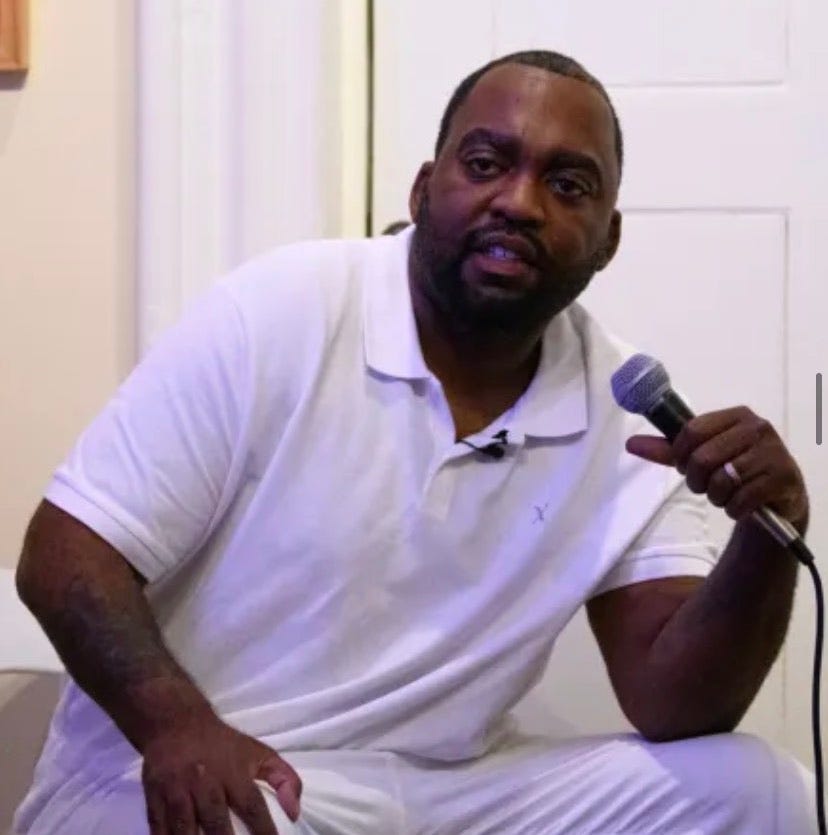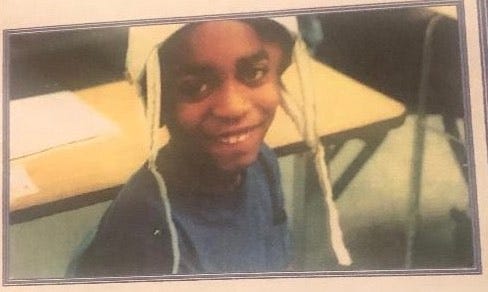Those Closest to the Problem Are Also Closest to the Solution
An interview with survivor and gun violence awareness advocate, Oronde McClain
Oronde McClain is a gun violence survivor and advocate, motivational speaker, media consultant, author, and mentor.
The last time we last spoke with him on our Armed with Reason podcast, he introduced us to the important and groundbreaking work he’s doing with The Philadelphia Center for Gun Violence Reporting (PCGVR). The goal of the organization is to expand the manner in which gun violence, its victims, and especially survivor stories are reported — or often not reported. It’s an increasingly important avenue to explore for gun violence prevention.
Oronde’s work shows us how fully reporting the ongoing effects of our firearms epidemic not only gives voice to survivors, but can further help readers understand the everyday realities that continue to reverberate long after tragic shootings.
Oronde’s latest venture is Survivor Connection, a new service within PCGVR intended to “help those reporting on gun violence take a more informed approach by centering the survivor community.” Check out our new interview with Oronde below.
By: Eric Davidson
The last time we spoke, you were working with The Philadelphia Center for Gun Violence Reporting.
I'm thrilled to still be working with PCGVR, where I've taken on an exciting new role as Director of Survivor Connection, a project that's close to my heart. As an Emerging Leader Fellow with the Stoneleigh Foundation, I've received invaluable funding and support to amplify my impact and drive meaningful change.
Congratulations! Can you tell us what motivated you to create Survivor Connection?
When you examine the news today, it predominantly features gun violence coverage without incorporating the perspectives of co-victims, victims, or survivors. The adage that those closest to the problem are also closest to the solution rings true. Collaboration can yield effective solutions. A news story should provide a personal dimension, rather than merely presenting victims as a collective group or a statistic.
PCGVR and the survivor community are witnessing significant growth and positive impact. As a viewer, I saw PCGVR making a difference, and as a community member, I was empowered to contribute. I collaborated with reporters to create a safe space for survivors, and my voice was heard in newsrooms. PCGVR is elevating its efforts, addressing disturbing content, and promoting constructive change. While there's always room for improvement, we're seeing impactful reporting and a stronger connection between newsrooms and the community. This progress inspires hope for continued growth and positive transformation.
What improvements have you seen in gun violence reporting? What areas still have an opportunity for growth?
I have observed significant improvements in news media, as they are now actively listening to survivors of gun violence and soliciting our input. I believe that PGVR is at the forefront of inspiring change in how the media covers stories. There is always room for improvement — such as providing resources through the media, or offering solutions rather than simply reiterating the problem.
As a survivor of gun violence yourself, what are some things you wish journalists knew or considered in advance when interviewing victims or their family members?
I hope reporters recognize that survivors are human beings too, deserving of empathy and understanding. We share the same emotions and vulnerabilities as everyone else, and we're committed to helping. By working together, we can achieve our common goal of raising awareness and promoting healing. That's why initiatives like Survivor Connection are crucial, empowering survivors to take control of their narratives and engage with the media in a confident and informed way. By approaching us with sensitivity and respect, reporters can help us share our stories in a way that promotes understanding and inspires positive change. Let's work together to create a more compassionate and supportive environment for everyone.
L-R: Jim MacMillan, Founder and Director of PCGVR; Jessica Beard, Director of Research at PCGVR; Yvonne Latty, Director/Professor at Logan Center for Investigative Reporting; Oronde McClain — at the premier of the documentary, The Second Trauma, April, 2024.
Trailer for the documentary, The Second Trauma; Oronde McClain, producer and host.
How do you feel personal stories regarding gun violence can positively impact the movement?
These powerful stories can humanize individuals who have been wrongly blamed or overlooked, and bring joy to those who have been impacted. By sharing them, we can acknowledge the resilience of survivors and the challenges they face. Let's amplify these stories to inspire hope and empowerment. In my opinion, all co-victims, victims, and survivors embody remarkable strength and deserve our recognition and support.
What can other GVP organizations do to support Survivor Connection?
Empower survivors and co-victims by visiting www.survivorconnection.org to sign up and www.Pcgvr.org to subscribe to newsletters. People going to the website fuels PCGVR's non-profit mission to spread awareness. Share your support by reposting and messaging us about the impact of our work. Help amplify the voices of survivors by forwarding this to those who need it.
You still have The Oronde McClain Foundation going?
Yes, the McClain Foundation is still up and running, I just stepped back because I was working with PCGVR and my fellowship.
As we enter a turbulent time for gun violence prevention — considering the pro-gun stance of the Trump administration — what are some things you can point to to give us hope for the movement?
As the future unfolds, we must hold our heads high. Difficult times will inevitably arise, but with resilience, we can overcome them. Survivors possess inner strength, and now is the time to tap into that power and continue on our journey with purpose. We will need everyone's support and collective unity to move forward together.
“Oronde McClain at 10 yrs old, recovering.”
Eric Davidson is Senior Editor at Armed With Reason. His first book, We Never Learn, has recently been reissued in an expanded edition.
Photos courtesy of Oronde McClain.






love this! thank you for bringing Mr. McClain's voice to AWR. now more than ever, we need to hear from and listen to the survivors of gun violence.